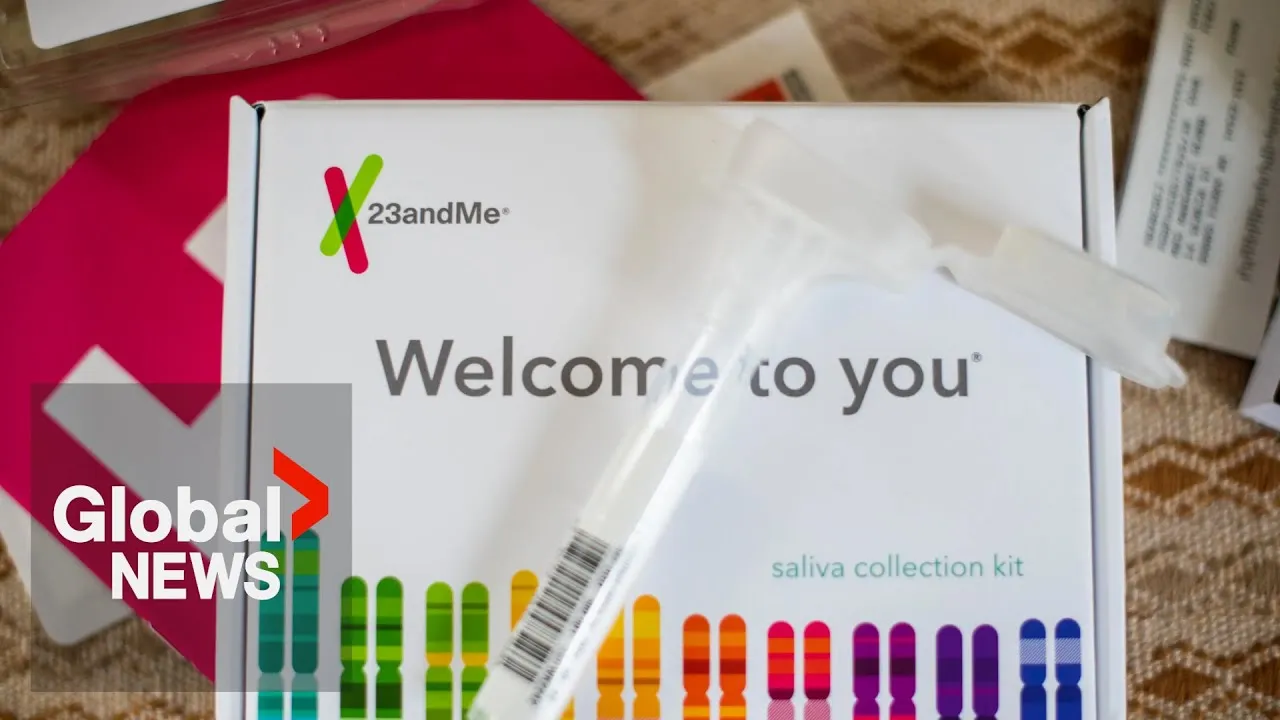“`markdown
23andMe Files for Bankruptcy: What It Means for Your DNA Data
In a shocking turn of events, 23andMe, the pioneering company in at-home DNA testing, has filed for Chapter 11 bankruptcy on March 24, 2025. This move comes as the company seeks a buyer to address its ongoing financial difficulties. The announcement has raised significant concerns among its 15 million users regarding the future of their genetic data, especially following a major data breach in 2023 that compromised 6.9 million customer accounts.
The bankruptcy filing marks a dramatic decline for a company that once boasted a market value of nearly $6 billion after going public in 2021. Co-founder Anne Wojcicki has stepped down as CEO and expressed interest in purchasing the company herself, although her previous acquisition proposal was rejected by the board. This situation underscores the broader challenges facing the genetic testing industry, including intense competition and increasing regulatory scrutiny.
Users are understandably anxious about the implications of this bankruptcy on their personal data. 23andMe’s privacy policy permits the sale or transfer of user information during bankruptcy proceedings, which raises critical questions about how their sensitive genetic data will be handled by potential new owners. Legal experts note that current federal laws, such as HIPAA, do not protect genetic data provided to direct-to-consumer companies like 23andMe, leaving many users vulnerable.
The Impact of the Data Breach
The recent data breach has compounded the company’s troubles. In 2023, the breach affected millions of customer accounts, leading to heightened concerns about privacy and data security. Following this incident, many users are now reconsidering their relationship with the company, prompting experts to recommend that individuals delete their data from 23andMe to safeguard their privacy.
California’s Attorney General, Rob Bonta, has urged residents to take action by directing 23andMe to delete their data and destroy any genetic samples. This call to action reflects a growing awareness of the risks associated with sharing personal genetic information with third-party companies.
Navigating the Bankruptcy Proceedings
As 23andMe navigates its bankruptcy proceedings, the company has stated that the privacy of its customers will be an “important consideration” in any potential sale. However, the effectiveness of this commitment remains uncertain. The outcome of these proceedings could set a precedent for how genetic data is managed in future corporate transactions, making it crucial for users to stay informed about any changes to the company’s data policies.
Experts emphasize the importance of understanding the implications of sharing personal genetic information. Many users may not be fully aware of how 23andMe shares their data, including collaborations with pharmaceutical companies like GSK, which have utilized anonymized data for drug development. This raises further concerns about what a new owner might do with sensitive genetic information.
Recommendations for Users
In light of these developments, users are advised to take proactive steps to protect their data. Here are some recommendations:
- Delete Your Data: Consider deleting your account and any associated data to mitigate privacy risks.
- Revoking Permissions: Review your account settings and revoke any permissions for research participation.
- Stay Informed: Keep abreast of developments in the bankruptcy case and any changes to the company’s policies regarding user data.
A Broader Perspective on Genetic Data Privacy
The financial struggles of 23andMe reflect a larger trend within the genetic testing industry. As competition intensifies and regulatory scrutiny increases, companies must navigate complex privacy concerns while maintaining consumer trust. The situation with 23andMe serves as a cautionary tale for users of genetic testing services, highlighting the importance of understanding the risks associated with sharing personal genetic information.
In conclusion, the bankruptcy of 23andMe poses significant questions about the future of genetic data privacy. As the company seeks a buyer, users must remain vigilant and proactive in protecting their sensitive information. The unfolding events will undoubtedly shape the landscape of genetic data handling in the years to come, making it essential for consumers to advocate for stronger privacy protections.
As we move forward, it is crucial for users to engage with their state and federal representatives to push for robust consumer privacy laws that can safeguard against the misuse of genetic data. The implications of this bankruptcy extend far beyond 23andMe, serving as a pivotal moment in the ongoing conversation about data privacy in the digital age.
Conclusion
The bankruptcy of 23andMe is a significant development in the world of genetic testing, raising essential questions about the future of personal data privacy. Users must be proactive in protecting their information and advocating for stronger regulations in the industry. As we await the outcome of the bankruptcy proceedings, one thing is clear: the handling of genetic data will require careful consideration and vigilance from all stakeholders involved.
“`






Leave a Comment